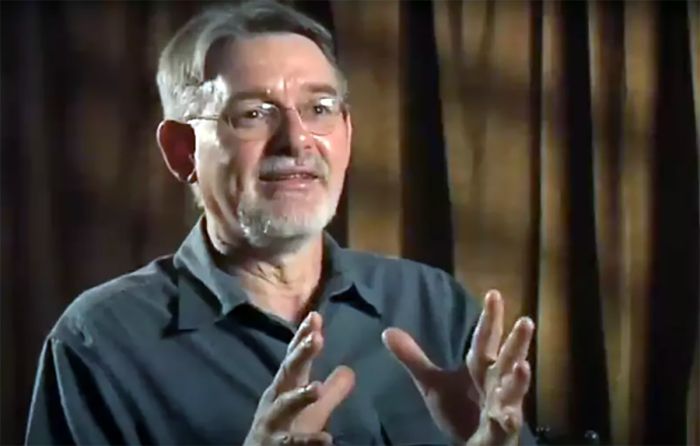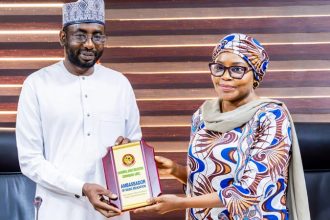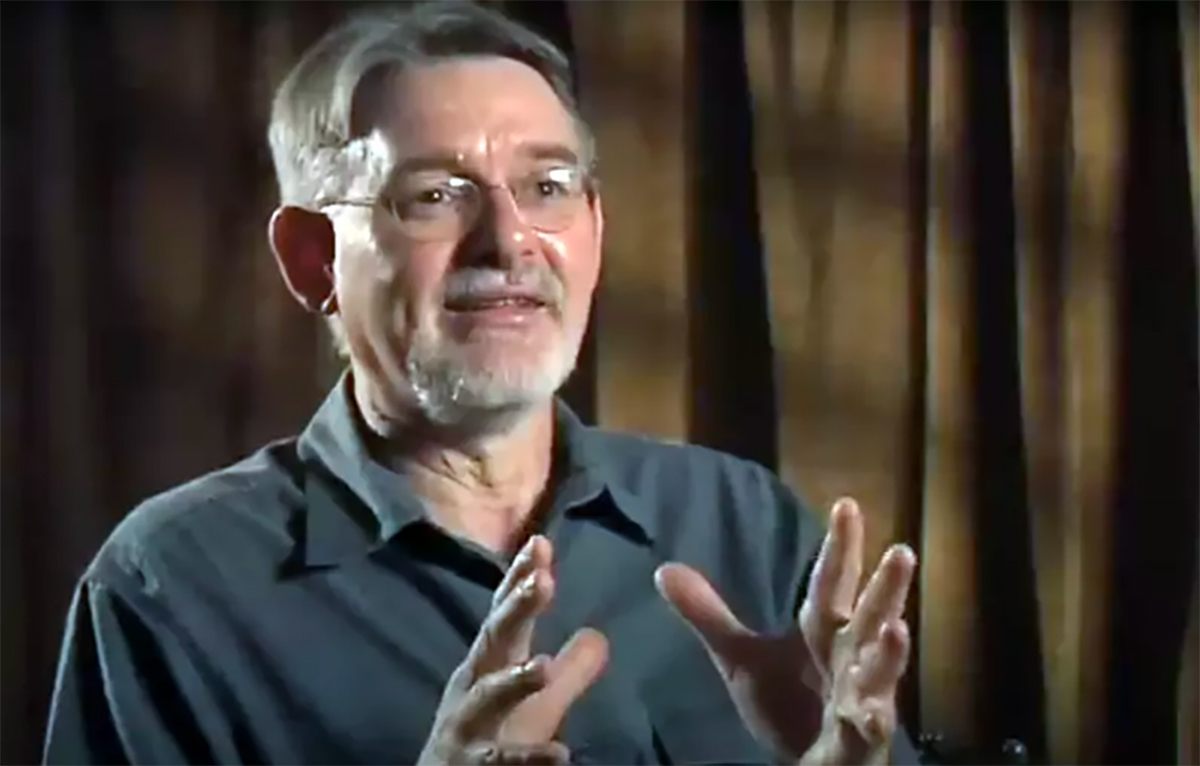
INCHEON, South Korea — After some participants at the Fourth Lausanne Congress on World Evangelization took offense to a plenary speaker’s comments on the Gaza war on Monday, Lausanne issued an official apology two days later distancing itself from the statements.
Now, Valdir Steuernagel, a senior figure in the movement spoke up on behalf of Palestinian participants, articulating their anguish of feeling abandoned by the global Church and calling on the Lausanne leadership to take notice — and action.
“It was the fourth day of the Congress, and what was latent surfaced with pain and the force of institutional endorsement. Incredible,” Steuernagel begins a letter he shared with Christian Daily International, which he had been circulating among leaders at the Congress. “A problematic email, sent by the director of the L4 Congress, distanced itself from one of the most impactful presentations of the event.”
Referring to Ruth Padilla DeBorst’s speech, he says, “God’s justice was affirmed and the violence of the war in Israel and its thousands of deaths, especially in Gaza, was highlighted.”
Steuernagel points to the word “forgiveness” that struck him when reading the apology letter, lamenting that “the event’s organization had not paid due attention to the content of the presented text, and there were things that went unnoticed.”
“Of course, there were theological details at play, which the author of the presentation herself would acknowledge,” Steuernagel says. “But what about the war? The deaths? The lives? And the churches? What about the Christians who live and suffer this cruel reality? Are there no words? No gesture? Will they, once again, simply be abandoned?”
A speech, a response, an apology
As Christian Daily International reported earlier, the statements in Padilla DeBorst’s presentation that triggered responses referred to “colonialist theologies that justify and finance oppression under the guide of some dispensational eschatology.”
Later in the Micah 6:8-inspired speech, she also called on the global Church not to ignore the suffering of those who face injustice. “There’s no room for indifference towards all who are suffering the scourge of war and violence. The world around the uprooted and beleaguered people of Gaza, the hostages held by both Israel and Hamas and their families, the threatened Palestinians in their own territories. All who around the world are mourning the loss of loved ones. Their pain is our pain,” she said.
The two passages led to strong reactions by some participants who accused Padilla DeBorst of blaming violence in the Holy Land on dispensational eschatology, a theological view that holds to a literal interpretation of Old Testament prophecies that speak about the nation of Israel. Further objections pointed to her assertion of Israel holding hostages and the lack of mention of Hamas’ attacks on Israel on Oct. 7, among others.
The Lausanne leadership also became target of criticism as it had reviewed all speeches before the Congress but had not taken action.
Two days later, Congress Director David Bennett sent an email to all participants. He acknowledged the diversity of views represented at the Congress and among the speakers but distanced himself from the remarks and apologized for the offense that Padilla DeBorst’s speech had caused.
“We have become aware of significant pain and offense experienced at this Congress from those in dispensational theological contexts, those who are Jews, and those engaged in ministries to Jews and/or in Israel. Our Lausanne team, including me, failed to review the wording of the presentation carefully enough in advance, or to anticipate the hurts and misunderstandings it would cause. As your brother in Christ, and on behalf of our Lausanne leadership, I ask for your forgiveness,” he said in the email.
Christians have a responsibility to speak up
When Christian Daily International approached Padilla DeBorst for comment, she first pointed to the time constraints of talking about the vast topic of injustice within the allocated 15 minutes. She also stated that her remarks were “not in any way a blanket dismissal of dispensational theology and, even less, of sisters and brothers who subscribe to that stance.”
“For the pain my statement might have caused, I am sorry,” she added, and clarified that what she referred to in her speech was “the troubling theological rationale sustained by some people to perpetrate injustice against certain other people.”
Regarding why she was specifically naming the war in Gaza, she commented that she believes Christians “have a particular responsibility” to speak up.
“Truly, the Hamas attack almost a year ago was abhorrent and absolutely reprehensible, and truly people who live in Israel, Jewish, Palestinian and others are being threatened as I write. Their pain is our pain,” she said. At the same time, she highlighted the suffering of the Palestinians, tens of thousands of whom have been killed, including many children. And she pointed to the Israeli settler attacks on Palestinians in the West Bank that have been on the rise in recent months. “Their pain is our pain — or it should be,” she said.
The reason why she believed this issue was important to raise at the Congress is because “far too many Evangelicals around the world a-critically ‘stand with Israel,’ and remain oblivious to the suffering Palestinians. This injustice must be named.”
Seeking to be seen and heard by the global Church
While Lausanne’s apology sought to quiet down criticism from some corners, it stirred up greater controversy as participants expressed concerns about the leadership’s selective judgment by singling out these two particular issues while ignoring others.
“In my view this apology was totally against the ethos of Lausanne,” said Tim Adams, general secretary of the International Fellowship of Evangelical Students, in comments sent to Christian Daily International last week. He expressed his dismay about the lack of maturity of those who took offense, as global events should be spaces for robust debate. He was also concerned that the apology risked causing greater division.
Steuernagel, however, points to another lamentable effect the apology had: that Palestinians, including those participating in the Congress, were given the impression that they did not matter.
“The day was marked by the tears of the brothers and sisters of the Palestinian churches. Attention!” Steuernagel says. “They are present, and despite the thousands of tears they have shed over these long months, once again they came and went hot. They arrived while surrounded by thousands of Christians from the most diverse places who, once again, rarely noticed the tears of a suffering, persecuted and declining Church.
“The feeling of abandonment cannot be deeper, more painful, or more incredible,” he bemoaned. Incredible among others because it happened on the same day when the Congress highlighted the plight of the persecuted Church around the world.
“The silence around the Palestinian Church spoke loudly. A silence that said the global Church did not care. Did not need them,” he says, referencing a phrase that had been presented as the “most dangerous words” for the global Church in the opening session of the Congress.
Speaking for those who came as participants and had an opportunity to be in fellowship with brothers and sisters around the world, he says the Palestinian believers had already become familiar with the sense of abandonment, “but they did not know it hurt so much to live it alongside those who passed by.”
Recognizing the existence of Palestinian Christians
Earlier this month, Christian Daily International reported about a meeting of more than 100 Evangelical Christians from Israel, the Palestinian territory of the West Bank, Lebanon and Jordan who came together for three days in Amman under the theme “That They May Be One.”
Hosted by the Alliance of Evangelical Councils in Jordan and the Holy Land, the extraordinary meeting was overshadowed by the ongoing war in Gaza, the mourning for fellow Christians killed in the conflict and the struggle with the reality that many in the global Church seem ignorant or indifferent to the suffering of their brothers and sisters in Christ in the region.
Palestinian journalist Daoud Kuttab, who reported about the “rare” gathering of Christians from the four countries, wrote that the war in Gaza and the international response over the past year “has alienated and angered many Palestinian Christians, who feel their co-religionists around the globe are oblivious to the suffering the war has brought.”
While Gaza is overwhelmingly Muslim, the small Christian community has been caught in the crossfire: a fact that some Christians in the Middle East feel is not understood or recognized by fellow believers in other parts of the world.
“Churches and a Christian-run hospital have been hit by Israeli shells with hardly a word from Christian leaders,” they lament, amid reports that at least 23 Christians were among those who died in Gaza.
Especially painful are news headlines of “politicians who publicly flaunt their Christianity” like last January when former U.S. Vice President Mike Pence “approvingly signed his name on Israeli bombs destined for Palestinian and Lebanese communities.”
What Christians in the Middle East bemoan most, however, is that fellow believers in many parts of the world seem to forget that they even exist, let alone that they understand their daily reality.
Kuttab wrote that during the gathering in Amman “difficult stories were told about the war in Gaza and the dislocations” caused by what he described as “Israeli occupation in the West Bank.” He describes how participants shed tears as they looked at photos of Palestinian Christian families who died in Gaza and listened to stories of the difficult life in the West Bank. Then they prayed for a ceasefire in Gaza and for the conflict and suffering to come to an end.
It is this context that both Padilla DeBorst in her speech and now Steuernagel in his letter sought to highlight.
(An op-ed published on Christian Daily International last February captured some of the dilemmas of different perspectives on the conflict.)
Toward a day of embrace through repentance and listening
In his poetically written letter, Steuernagel points to what he believes to be the right way forward. Desiring to move from the “Day of Abandonment” to the “Day of Embrace,” he expresses his hope for what could ultimately lead to comfort and unity.
“I saw it! I saw that there were also other tears. Tears that sprang from other tearful eyes and, born from the depths of the soul, wanted to express repentance and solidarity,” he says.
“It is a fact. There are many others who have tears to shed. There are many other souls who, in solidarity, have space to cry. Let us move our bodies in search of the painful tears of these brothers and sisters, in search of transforming the day of abandonment into the day of embrace.”
He cautions that it is necessary to go slowly “because before embracing, it is necessary to recognize the abandonment, and even the neglect, to which we subjected these churches and these brothers. It is necessary to do what this event has called us to: repentance.”
Repentance is not something abstract but real, he says. “It is necessary to listen to our brothers and sisters from Palestine so that we can internalize their cries. The cry to be recognized and not forgotten and ignored. The cry of not being victims of a theology that has no place for them as participants in the ‘Israel of God.’”
“The cry for participation in the reconstruction of both the Church and their communities, as a sign of a God who does not abandon but is present and does so through His body. Then, and only then, can the day of abandonment be followed by the day of embrace. An embrace that, with true eschatological hues, can begin with the exchange of tears,” Steuernagel says, and concludes his letter with a question.
“Can we expect another email?”
Update: The Friday evening plenary at the Congress featured a Palestinian Christian as panelist who spoke on reconciliation. An article on the session will follow.
Originally published at Christian Daily International
Christian Daily International provides biblical, factual and personal news, stories and perspectives from every region, focusing on religious freedom, holistic mission and other issues relevant for the global Church today.






